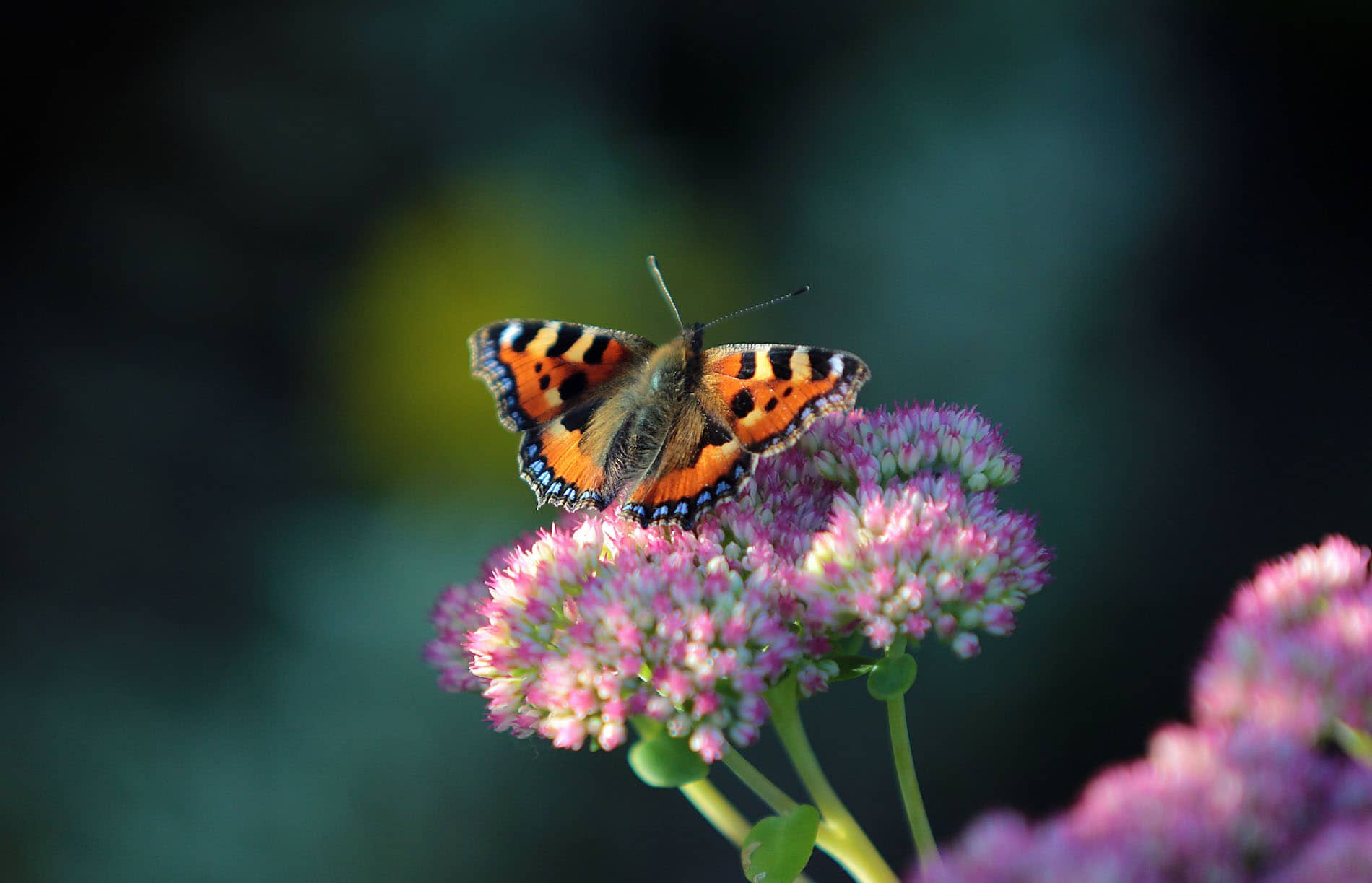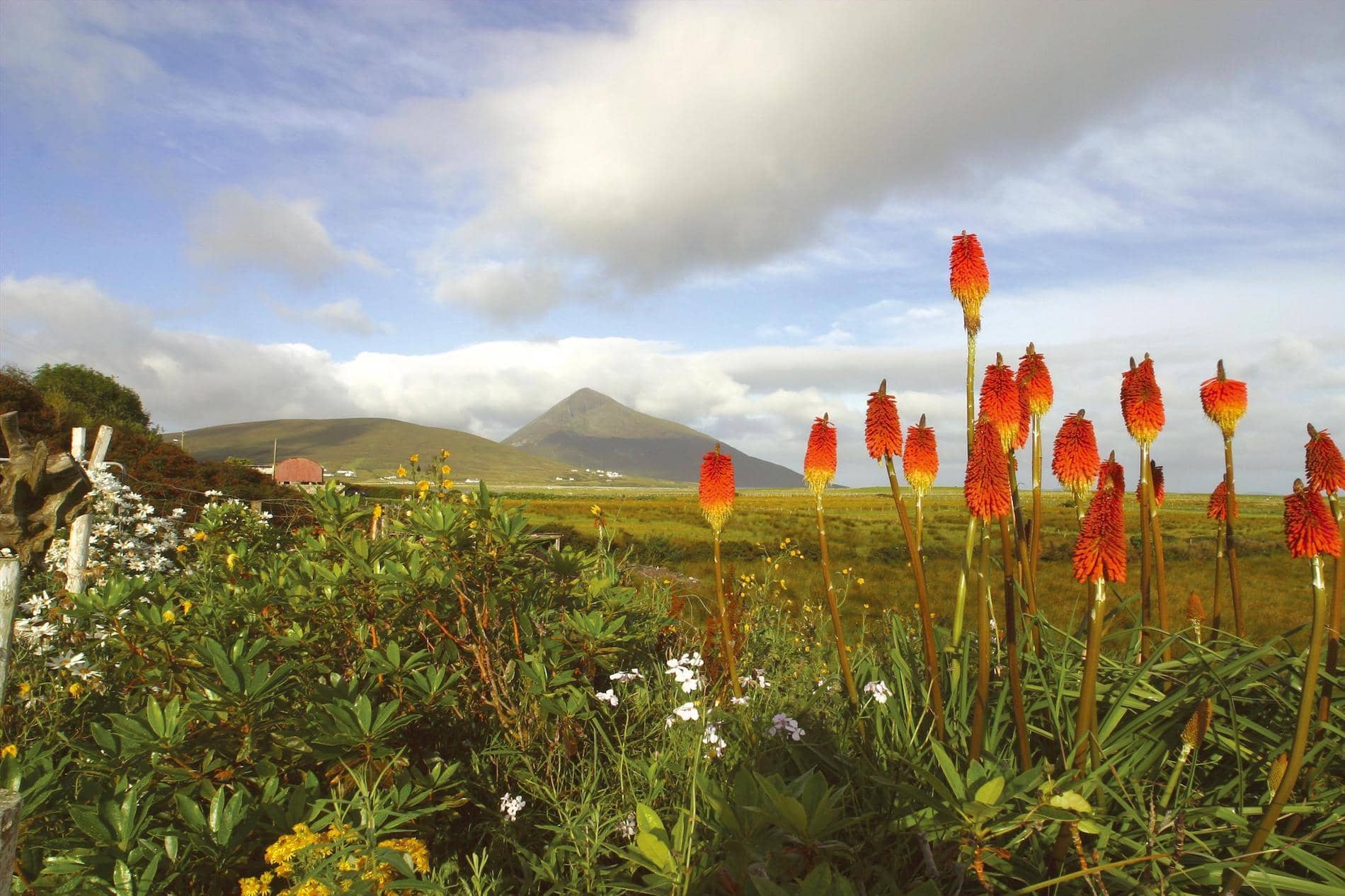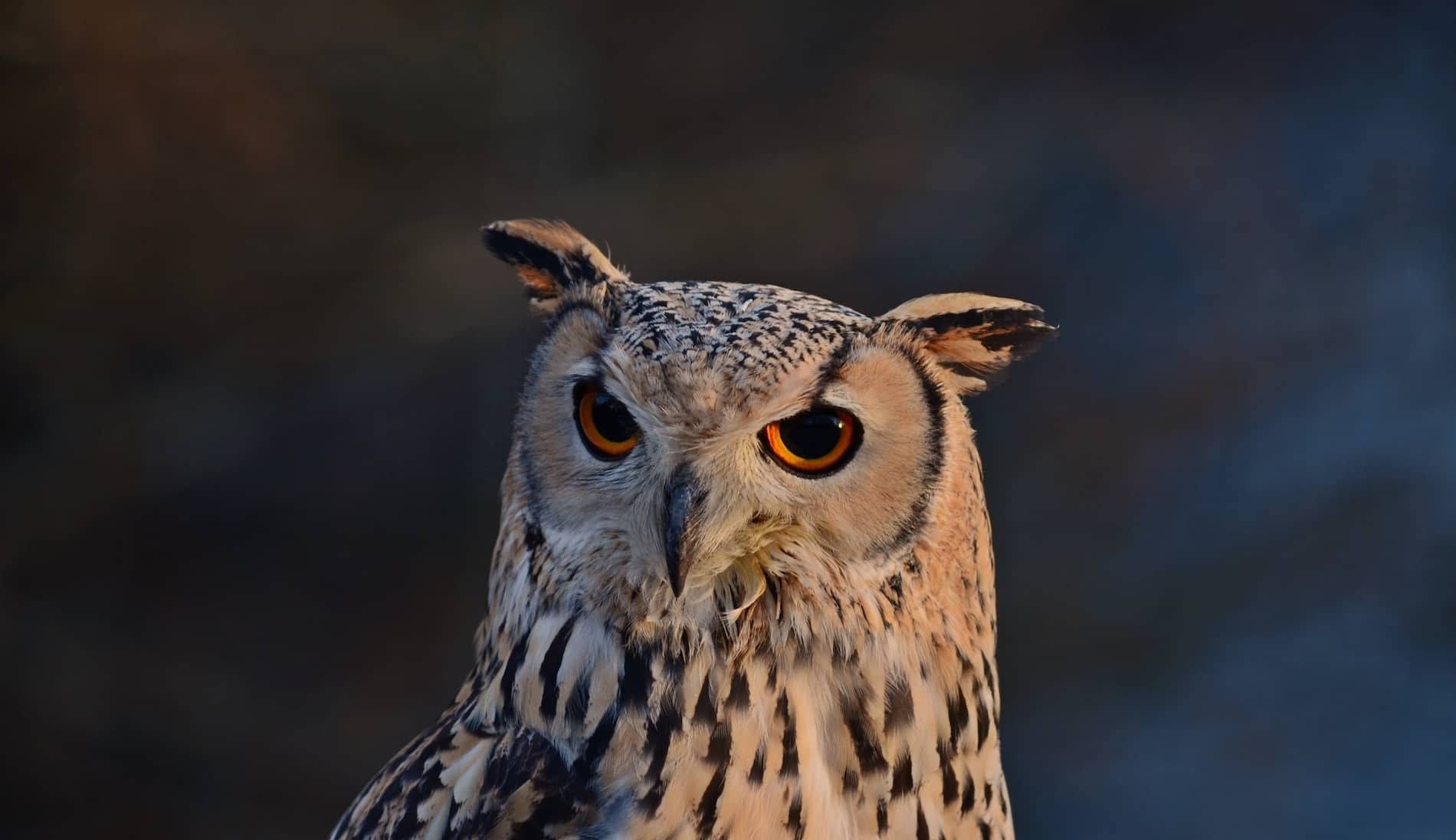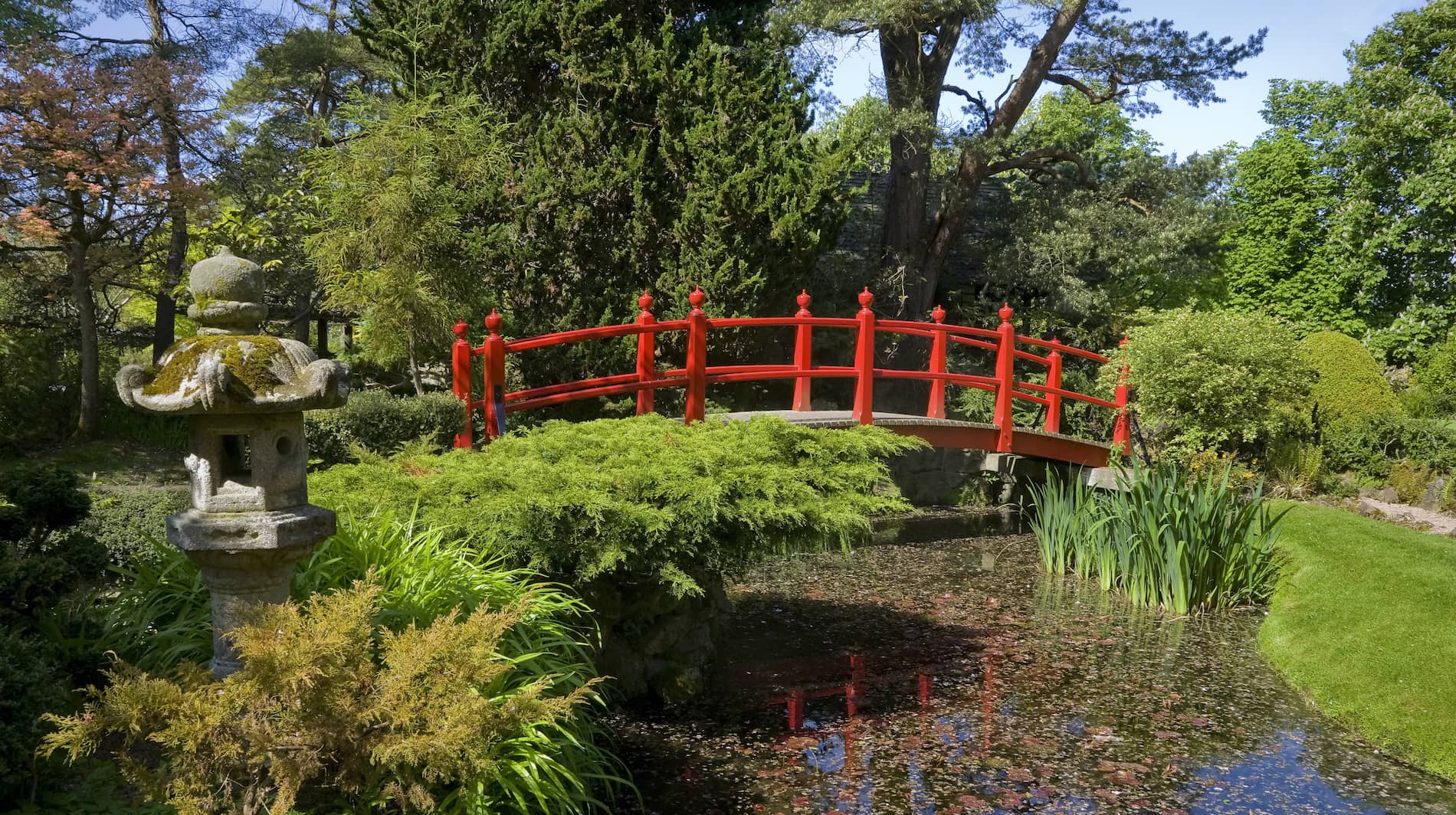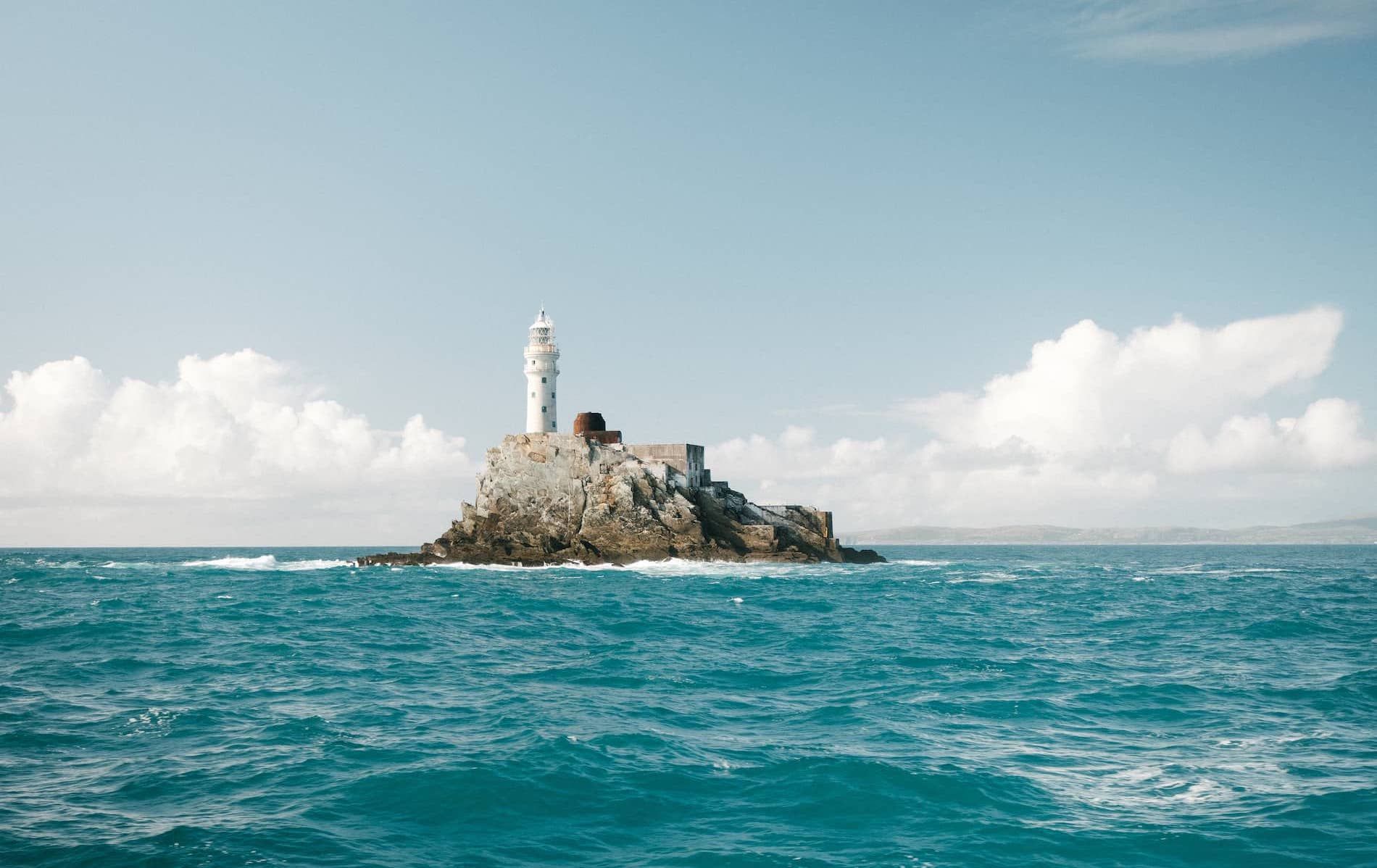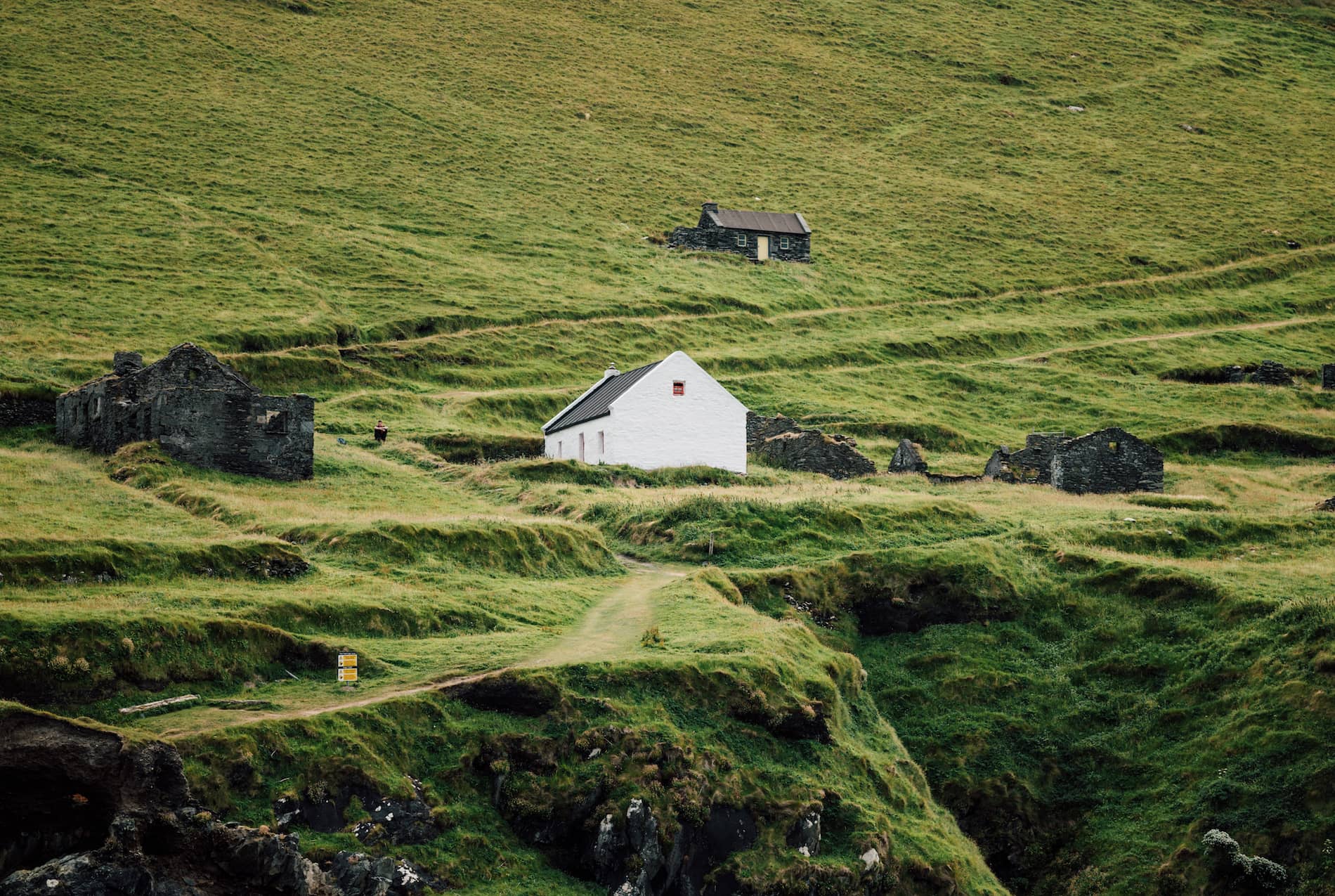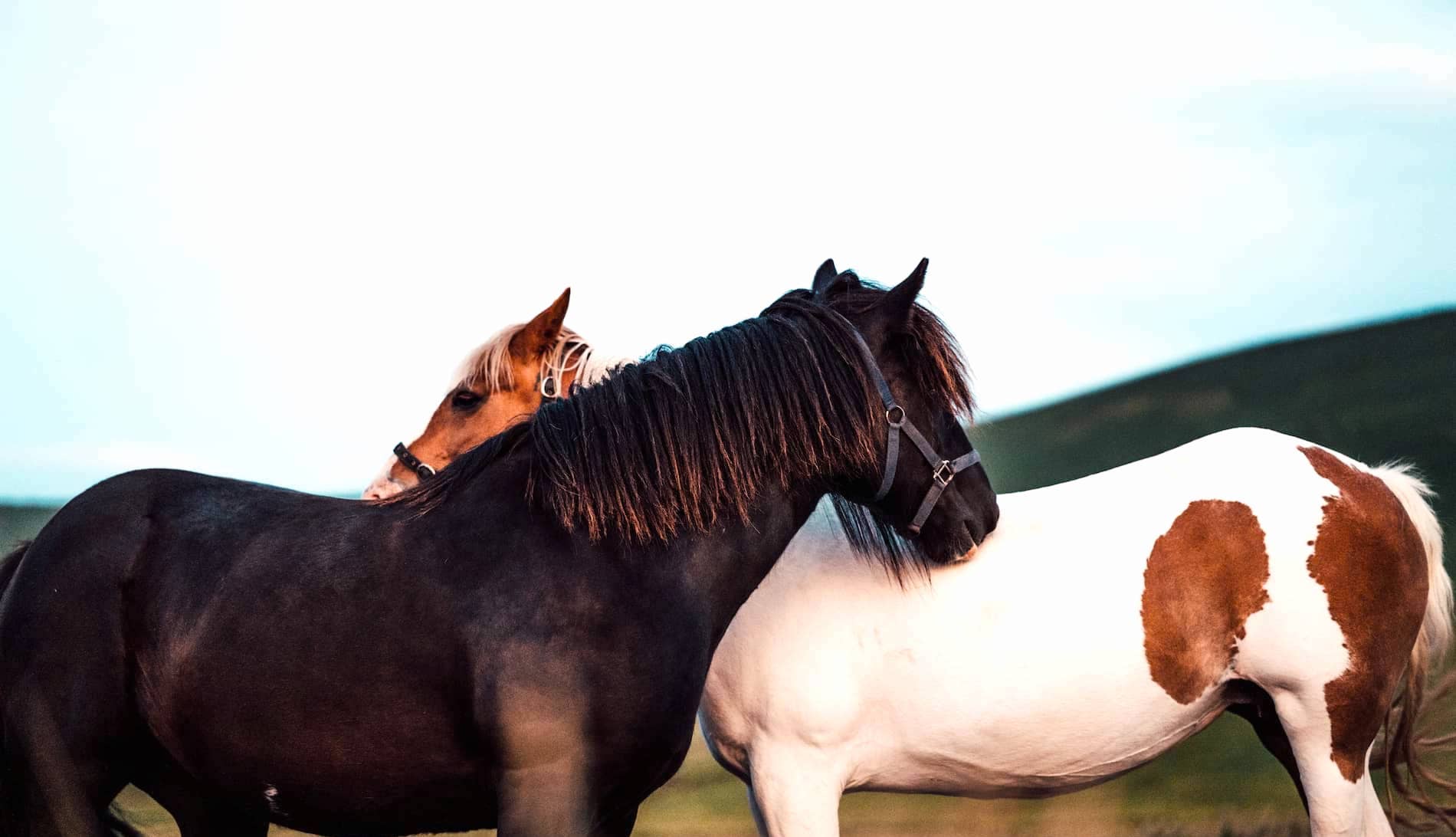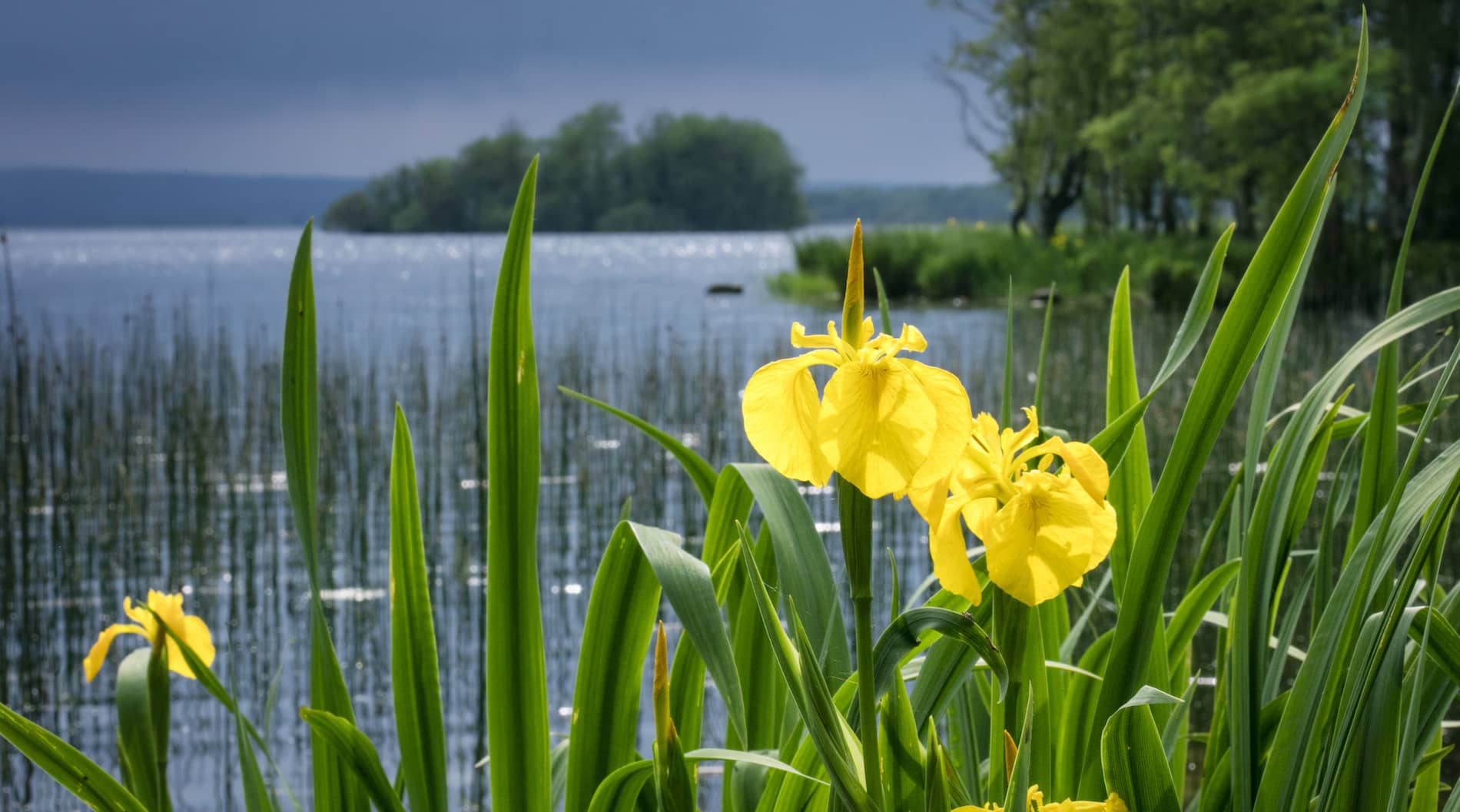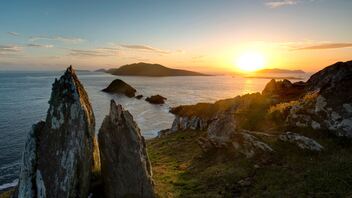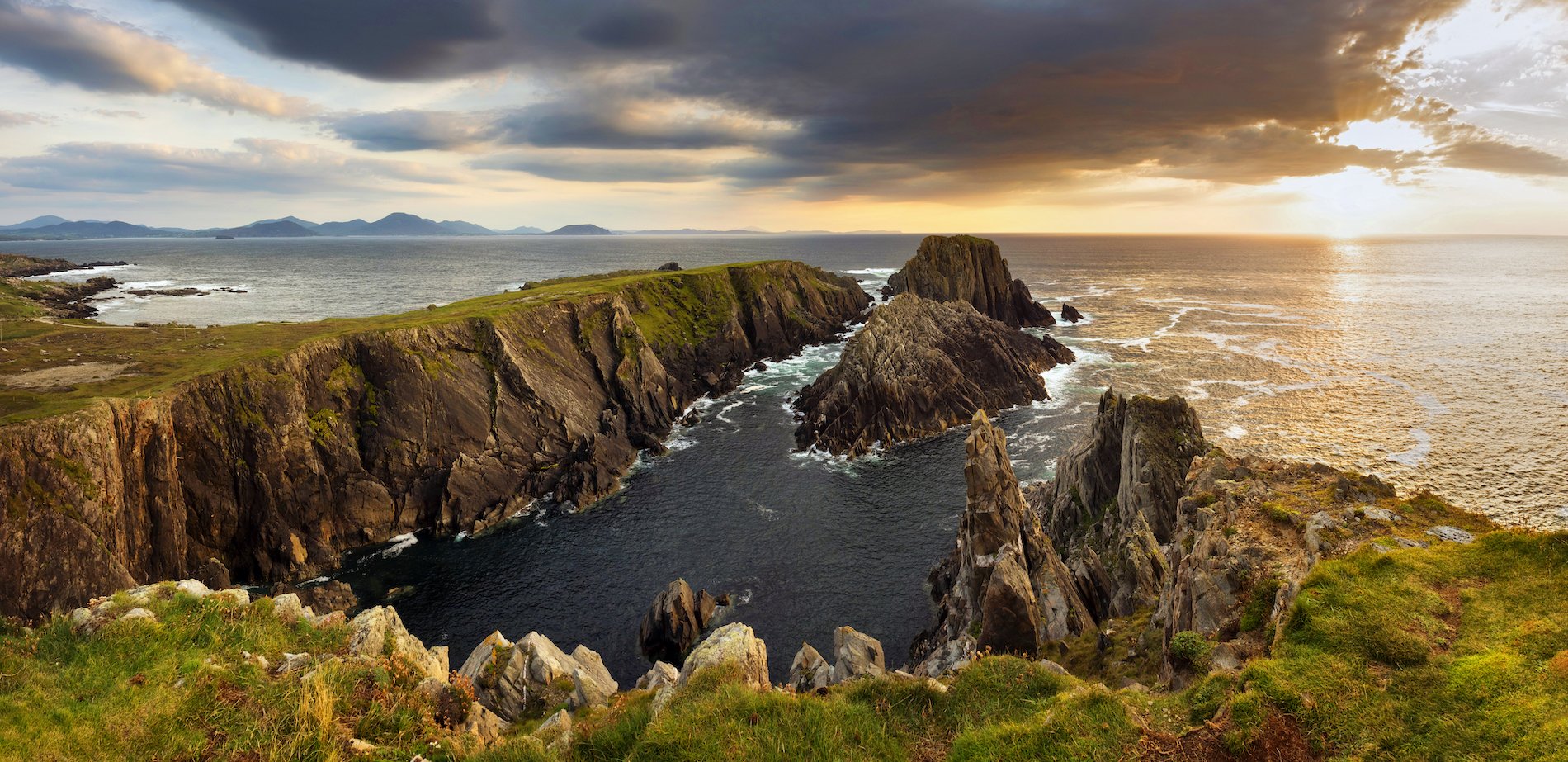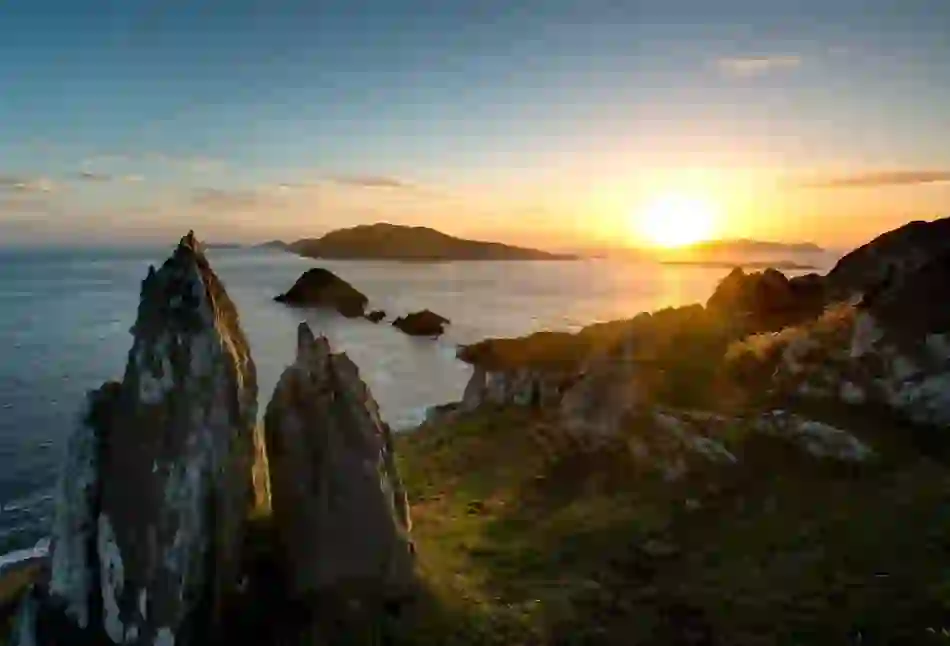
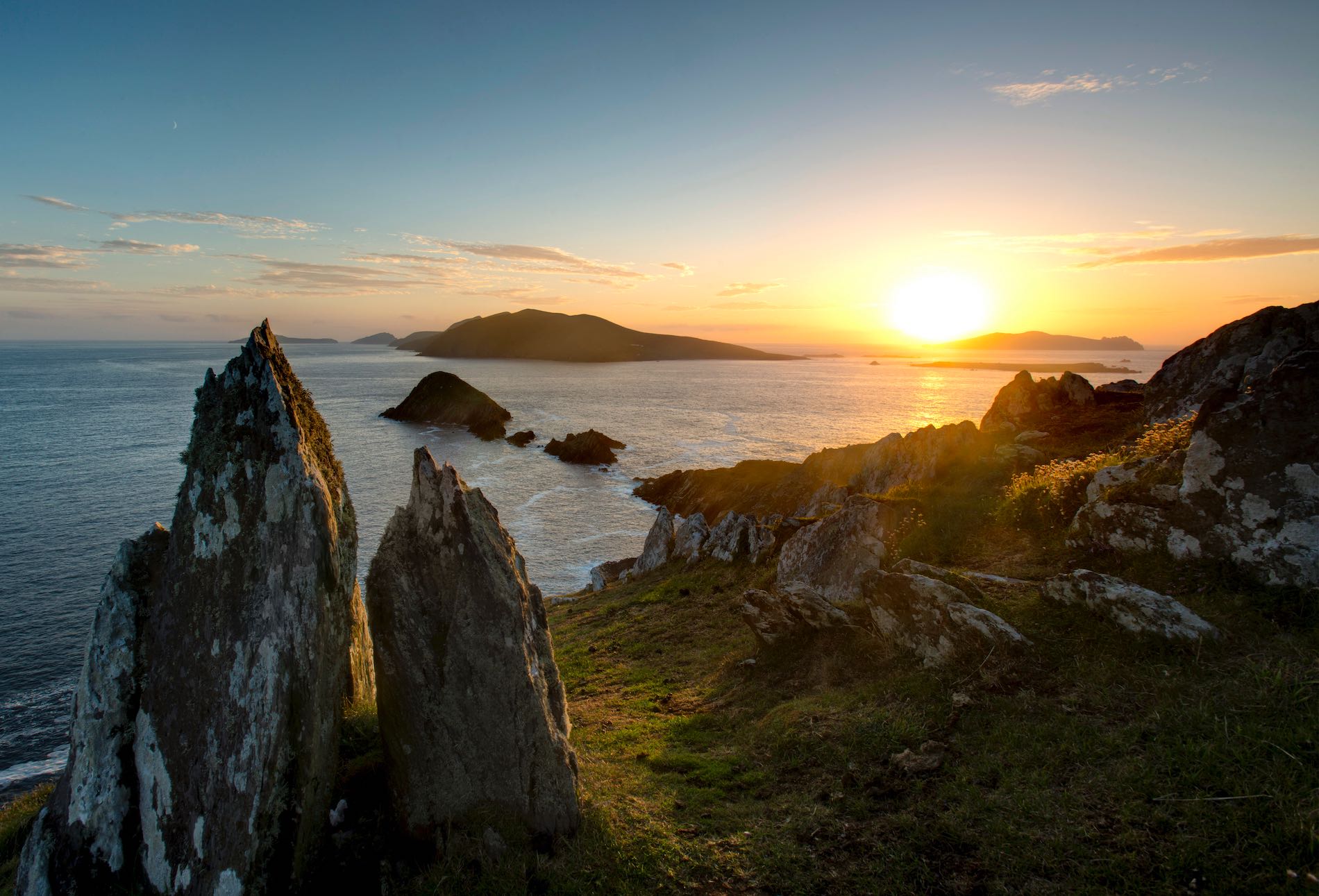
The island authors
People here don't talk of going "out" to the island. They say they're going "into" it. It's a form of words which suggests that a trip there isn't just another holiday stop-off. It's a voyage into the heart of something remarkable.

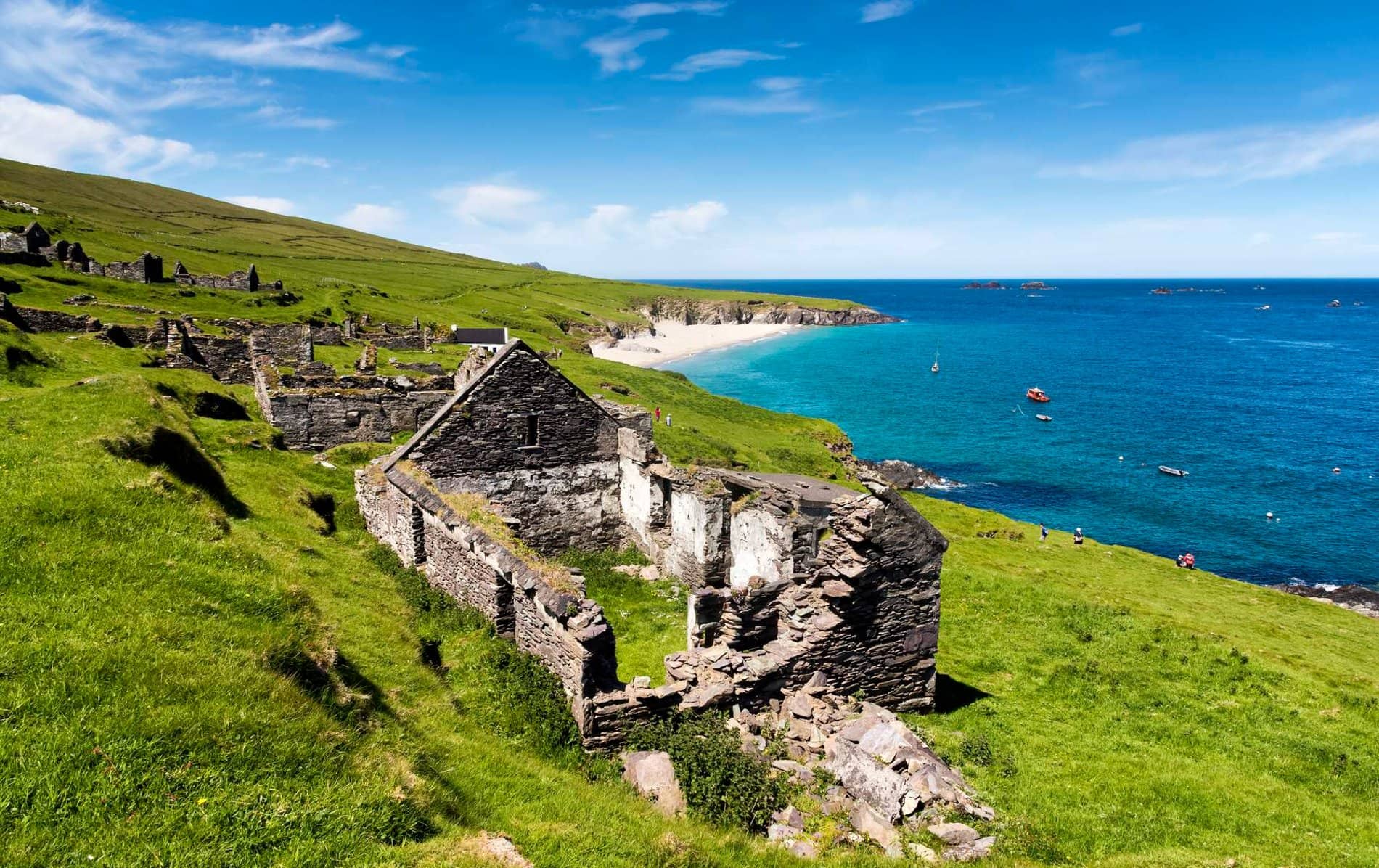
Abandoned house on the Great Blasket Island
The last people who lived on the Blaskets moved to the mainland in the 1950s: isolation and emigration had made their life unsustainable. Today, the islands are still deserted but can be reached by ferry from the incredible location of Dunquin Pier, which is accessed by walking down a steep, winding slipway. To your left, it clings to the cliff face; to your right, a low wall protects you from the long fall to the Atlantic ocean below. When you get to the bottom you'll see the remains of an even steeper path, leading up the towering cliff beside you. There was a time when fishermen here climbed that crumbling path with their catch carried in baskets on their backs.

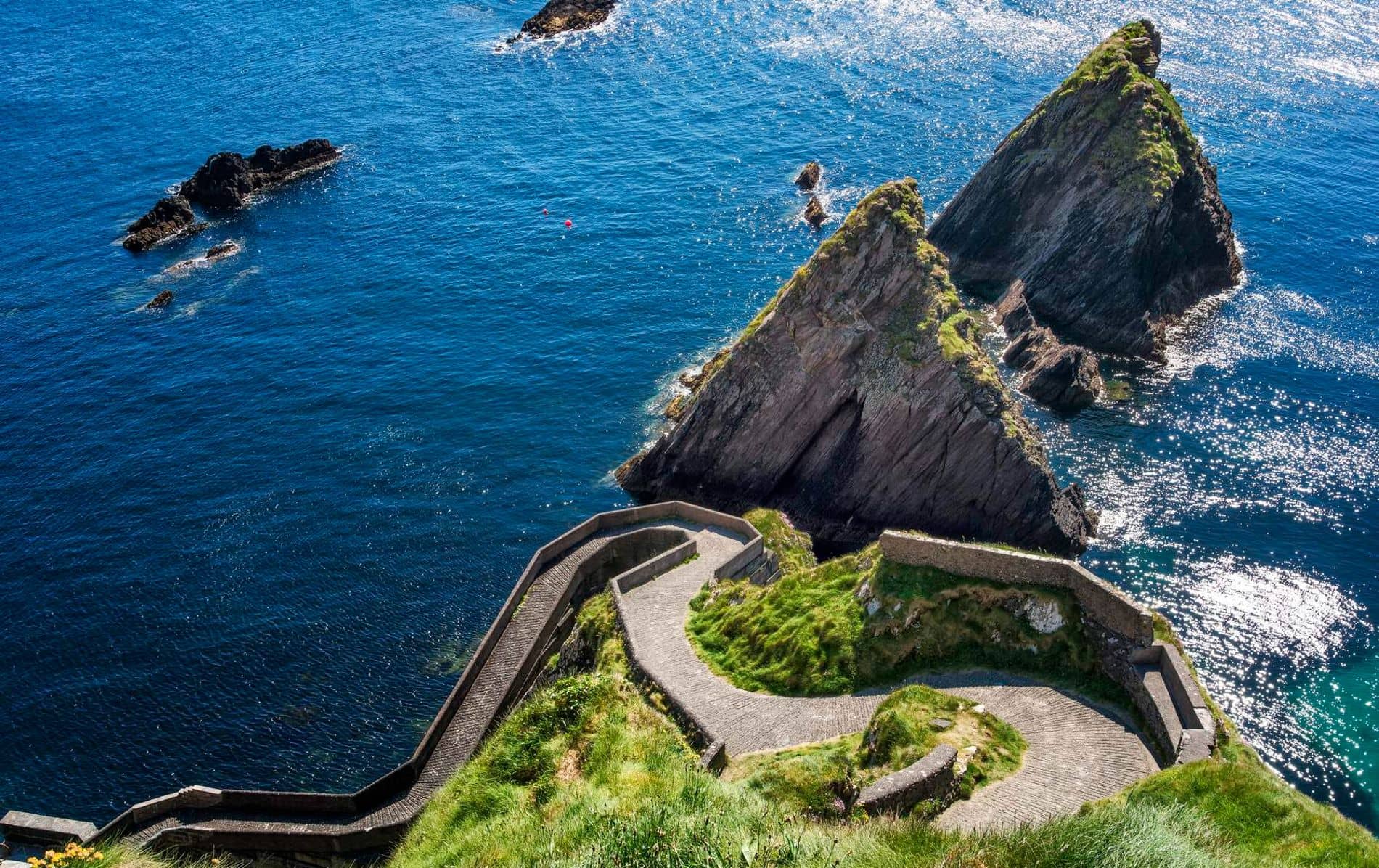
Dunquin Harbour, County Kerry
When you reach the island, you step from the ferry onto another slipway, and climb to a high, grassy road that leads to an abandoned village. The half-ruined houses, built of field-stones, cluster together against the Atlantic wind. Some are built so closely against the hillside that their roofs were on a level with the stony green fields.
Higher still, at the edge of a dizzying cliff, you can lie on cushions of sea-pink and look down on the White Strand. The islanders used to dance there on summer evenings. The last time Felicty Hayes-McCoy was there the sun was blazing, the beach below looked luminous and the ocean was a dazzling silver sheet. On days like that it seems impossible to believe in long months of howling wind and darkness. But in winter the islanders were cut off from the mainland for weeks at a time. Often close to starvation, they lived closer than family and all they had was shared.

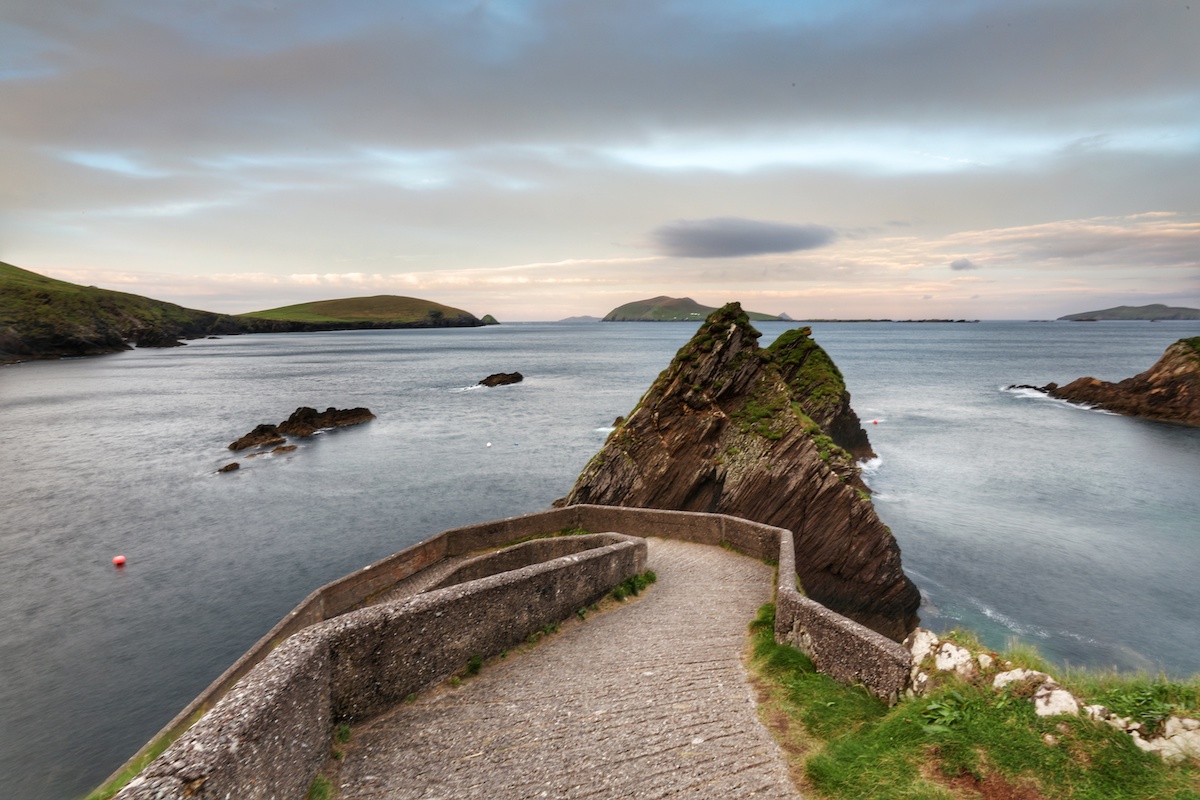
Blasket Islands, County Kerry
At the beginning of the 20th century, some remarkable books came out of that community. An ancient oral tradition of storytelling lay at the heart of the Celtic culture they’d inherited. But, knowing their way of life was coming to an end, some islanders decided to write down their memories. Their native language was Irish but their books have been translated into English, and some into German and French. They were written, according to their authors, "because the like of us will not be here again".

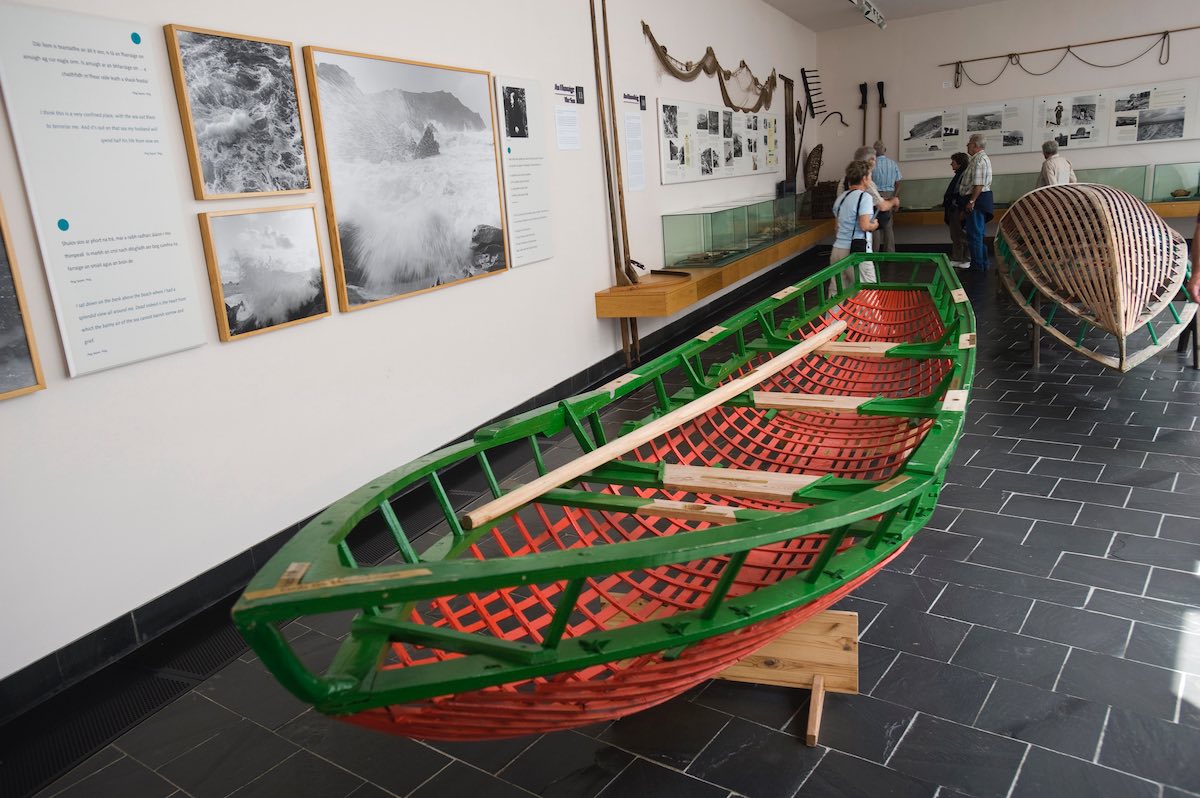
Blasket Island Centre
If you come to the Dingle Pensinsula you can visit The Blasket Centre in mainland Dunquin (Dún Chaoin). But a great way to connect with the heart of the islands is by reading its literature. Books from the Blasket Islands were written by farmers and fishermen such as Tomás Ó Criomhthain, whose memoir An tOileánach (The Islandman) has become a classic; from Muiris Ó Suilleabháin whose book Fiche Bliain ag Fás (Twenty Years A Growing) tells how he was raised on the island by his grandfather before leaving to work on the mainland; and from Peig Sayers, whose memoir, dictated to her son, reveals the islandwomen’s resilience, humour and courage.
From the Great Blasket to America, a heartbreaking memoir written in 2013 by islander Mike Carney, describes what it was like growing up on the Blaskets, as well as his life in Springfield, Massachusetts, where many Blasket emigrants put down new roots.
At the heart of each book is a love for the beauty of the writers’ surroundings, a profound respect for their cultural inheritance, and a powerful depiction of community. Several were published with the help and encouragement of visitors to the island, some of whom came to study the Irish language. And some visitors wrote about their experience: in the English author Robin Flower’s wonderful book, The Western Island, the author’s love and respect for the place he discovered as a student shine out of every page.

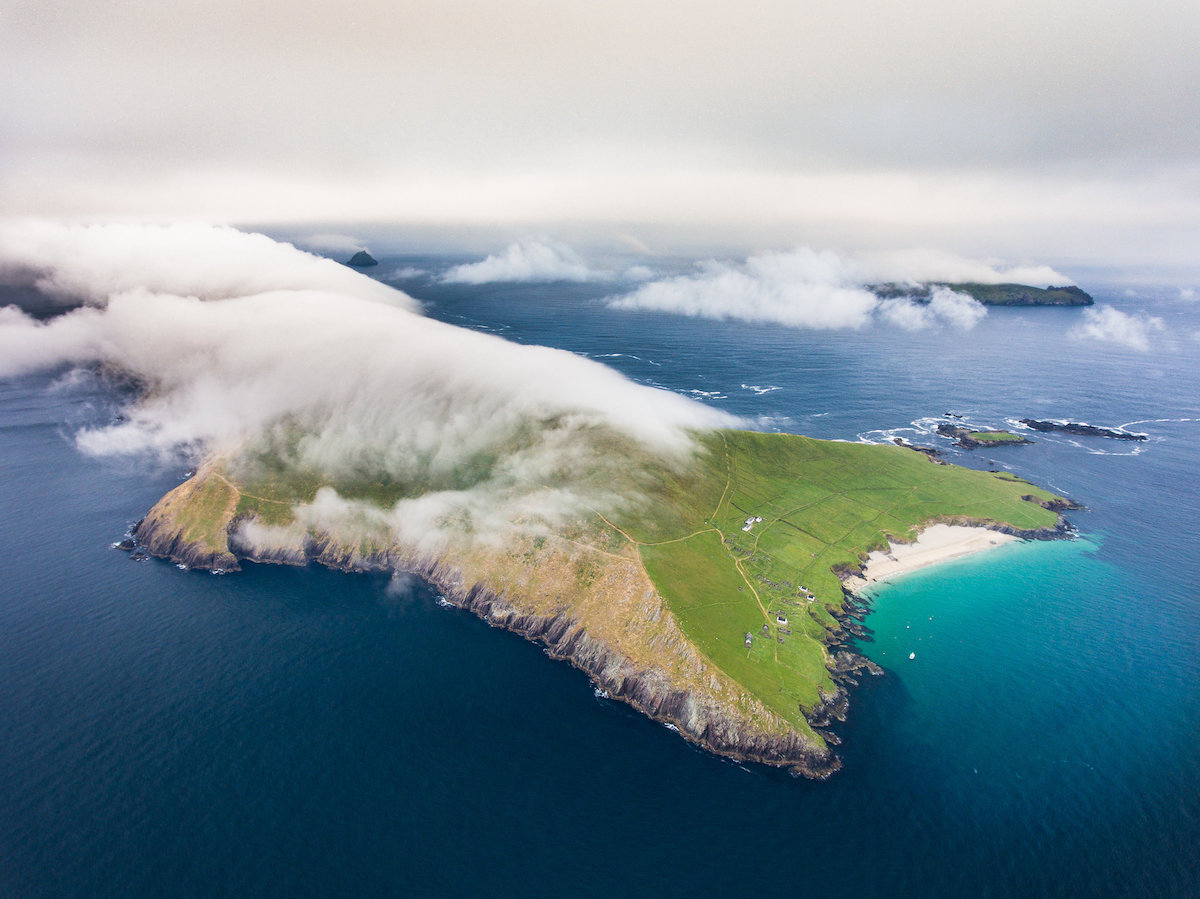
Blasket Islands, County Kerry
My own memoir, The House on an Irish Hillside tells the story of lifelong love for this western end of the Dingle peninsula, where I too first came to study Irish. One of the proudest moments I’ve had since its publication was seeing it in a bookshop alongside the works of Tomás Ó Criomhthain and Peig Sayers. To tell the truth I was also slightly horrified that my work should be there between those giants. But then I remembered the islanders’ legendary kindness to strangers, and how storytelling was the lifeblood of their community. So I hoped they wouldn’t mind.
The House on an Irish Hillside by Felicity Hayes-McCoy is available in bookshops, and from online outlets in print and ebook editions.
Checkout the book's Facebook Page for reader comments, stunning photos and reviews.





